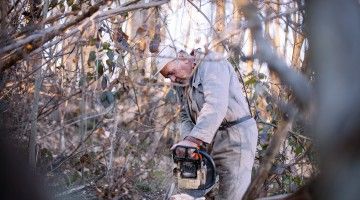Aging workers
As fertility rates fall and life expectancy climbs, the average age of Canada’s population continues to rise. This has widespread implications for social policies and the world of work. IWH research explores these implications, such as the effects of aging on work ability, injury rates, injury and disease prevention, productivity, accommodation and return to work. It also looks at the workplace and social programs that will allow aging workers to remain at work in a healthy and productive way until they transition into retirement.
Featured

At Work article
Older workers not prone to ask for employer support, citing ageism and other issues
Many older workers are in no hurry to retire, but they may have support needs they're reluctant to divulge. An IWH team explores the reasons and suggests ways workplaces can provide support despite the absence of disclosure.
Published: November 7, 2022
Journal article
Journal article
Early labor force exit subsequent to permanently impairing occupational injury or illness among workers 50-64 years of age
Published: American Journal of Industrial Medicine, February 2018
Journal article
Journal article
A systematic review of interventions to promote work participation in older workers
Published: Journal of Safety Research, January 2017
Project
Project
Conceal or reveal? Facilitators and barriers to older workers' communication of accommodation needs
Little is known about how older workers make decisions about whether or not to communicate their job accommodation needs and, if so, to whom, when and how. An IWH study is exploring the barriers and facilitators to the communication of baby boomers’ workplace accommodation needs.
Status: Ongoing
Project
Project
Extended working life and its interaction with health, wellbeing and quality of life: a multi-country initiative (THRIVE)
Canada was one of four countries taking part in a multi-national study exploring policy approaches to extending the working lives of older people in a manner that is both effective and fair for all workers. IWH led the Canadian portion.
Status: Completed 2019

At Work article
Disability leave duration rises with age, chronic conditions
The relationship between age and days on disability changes with different chronic conditions.
Published: August 2016

Research Highlights
Are older workers off work longer after an injury because of the nature of their injuries?
Older men and women with work-related injuries remain off work on benefits longer than other workers, and this longer time off work is not explained by the type or severity of their injuries.
Published: January 2016
Project
Project
How RTW differs for workers with psychological injuries, older workers
Using workers' compensation data from the Australian state of Victoria, an IWH study investigates differences in the return-to-work experiences of workers with psychological injuries compared to those with musculoskeletal disorders, and of older workers compared to younger ones.
Status: Completed 2020
Project
Project
Understanding the relationship between osteoarthritis and work: a systematic review
An IWH systematic review team took a look at the research to ascertain the level and quality of evidence for a causal relationship between work-related activities/exposures and the development of osteoarthritis.
Status: Completed 2018
Project
Project
Role of aging in return to work and stay at work: a systematic review
What interventions and factors help injured older workers successfully return to work? A research team led by the Institute for Work & Health searched the evidence for answers.
Status: Completed 2017
Project
Project
Understanding the employment needs and experiences of baby boomers with arthritis and diabetes
Episodic health conditions such as arthritis and diabetes can pose unique challenges to older workers who wish to remain in the workforce. An IWH team explored these challenges and their association with work outcomes.
Status: Completed 2019